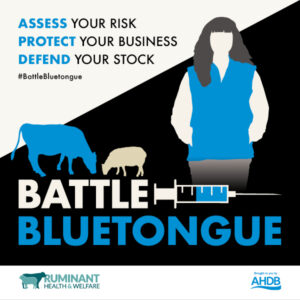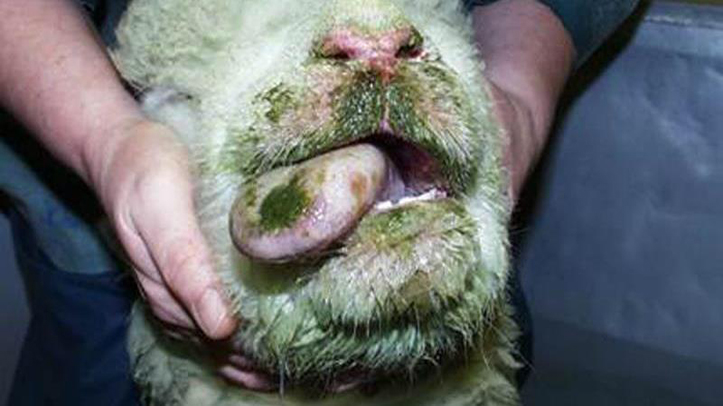Farmers in England and Wales are being urged to consult their vet about vaccinating their herd or flock against Bluetongue serotype 3 (BTV-3) this spring as part of the new Battle Bluetongue campaign which has been launched across the ruminant industry.
BTV-3 continues to pose a significant threat to both cattle, sheep, goats and camelids with potential impacts on animal health, productivity, and trade.
As there is no treatment for the disease, slowing its spread through vaccination and restricted movements in affected areas remains the best defence.
To aid this, the proactive #BattleBluetongue campaign has been developed by the Agriculture and Horticulture Development Board (AHDB) and Ruminant Health & Welfare (RH&W) in collaboration with key veterinary and industry associations.

Dr Amey Brassington, senior animal health and welfare scientist at AHDB, explained why the campaign is urging English and Welsh farmers to have proactive discussions with their vets to assess their risk to BTV-3.
“By working through the new resource produced for the campaign with their vet – a vaccine decision maker tool – farmers can understand their BTV-3 risk to then defend their stock by vaccinating the right animals,” she said.
“Farmers are encouraged to develop farm specific battle plans with the aim to help increase the level of vaccination for high-risk stock to provide some level of defence against the disease on farms.”
Through the campaign, farmers are being encouraged to:
Assess your risk;
Protect your business; and
Defend your stock.
Independent sheep vet specialist, Fiona Lovatt of Flock Health, said BTV-3 vaccination is crucial in reducing disease spread and its impacts on industry and trade.
She added: “Vaccination is the most effective tool we have to protect the national herd and flock against BTV-3, but it requires action now.
“At present vaccination is only licensed for use in England – and Wales from March 1 – however we continue to encourage vets and farmers across the UK to make sure they are aware of how BTV-3 is transmitted, and take caution to protect their herds or flocks by following evidence based on farm midge control tactics.”
For more information on accessing the #BattleBluetongue campaign assets, which include posters and flyers, please click here.


